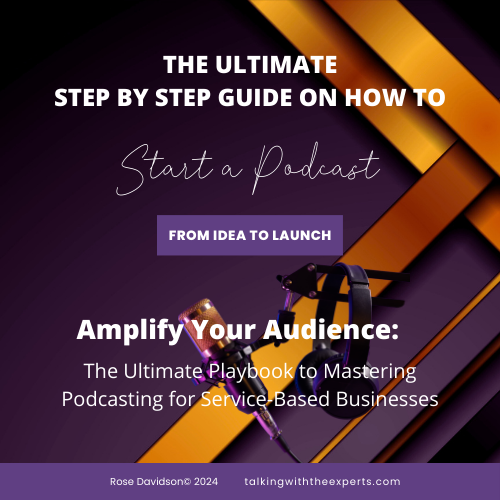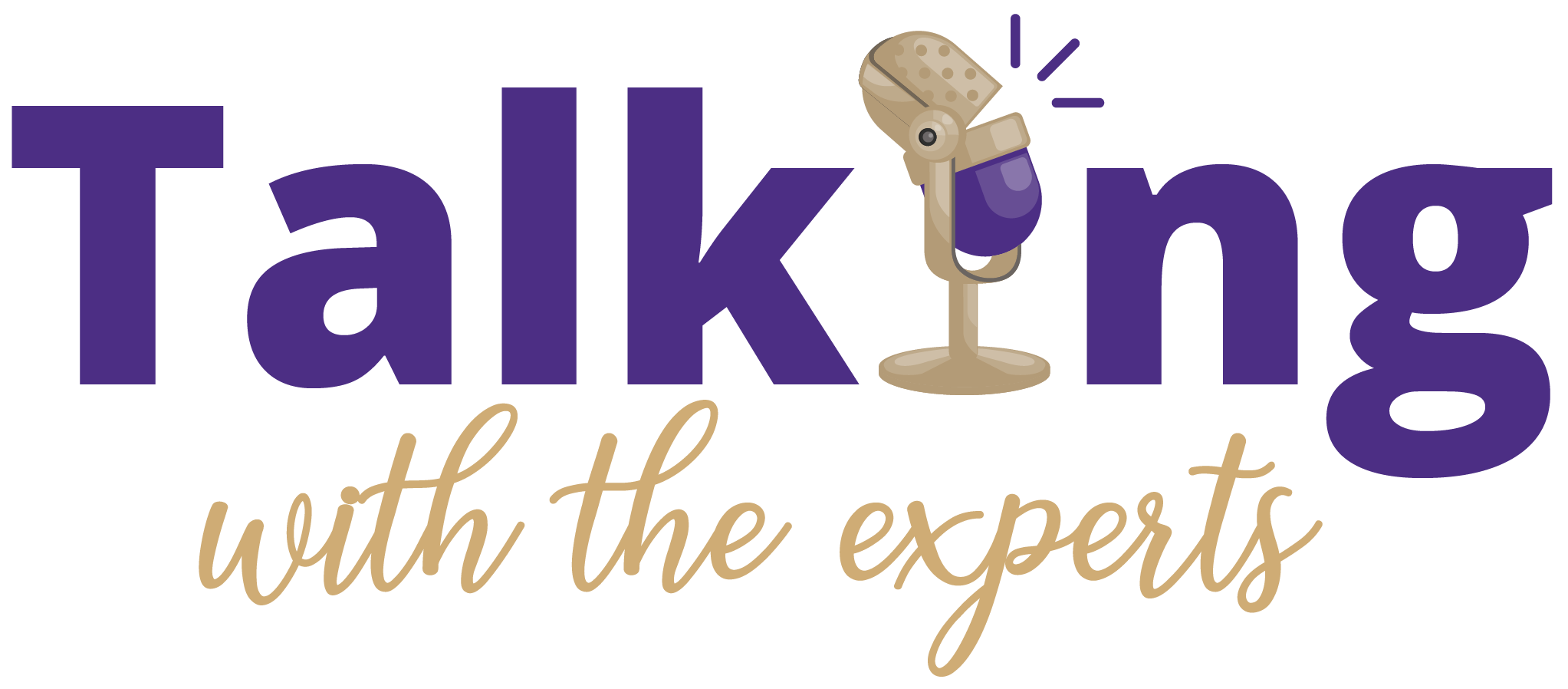In today’s competitive business landscape, standing out from the crowd and building meaningful connections with your target audience is more challenging than ever. With the rise of digital media, businesses have more tools than ever before to engage with their audience. However, one of the most powerful yet underutilized tools is podcasting.
Podcasting is more than just a way to share information—it’s a powerful marketing tool that can help your business grow, build authority in your industry, and create lasting connections with your audience. In this article, we’ll explore why your business needs a podcast, the benefits of podcasting for businesses, and how you can use this medium to achieve long-term success.
What is Podcasting, and Why is it So Popular?
A podcast is a series of audio episodes, typically focused on a particular topic or theme, that listeners can stream or download on-demand. The medium has exploded in popularity over the last decade, with millions of podcasts available on platforms like Apple Podcasts, Spotify, and YouTube. The appeal of podcasting lies in its accessibility, flexibility, and ability to fit into the busy lives of modern consumers. People can listen to podcasts while commuting, exercising, cooking, or relaxing at home.
For businesses, podcasting offers a unique opportunity to reach potential customers in a highly engaging and personal way.
The Benefits of Podcasting for Businesses
1. Build Brand Authority and Thought Leadership
Podcasting is an excellent platform for establishing your business as an authority in your industry. By sharing valuable insights, expert interviews, and in-depth discussions on topics relevant to your audience, you position yourself and your business as thought leaders. Over time, this builds credibility and trust with your audience.
For example, a marketing firm might create a podcast that discusses the latest trends in digital marketing, offering actionable tips and expert interviews. This not only showcases the firm’s expertise but also positions them as a go-to resource for businesses looking to improve their marketing strategies.
2. Increase Brand Awareness
A podcast can significantly expand your brand’s reach. With millions of podcast listeners worldwide, creating engaging and informative content can attract a global audience. Each episode you release serves as a new opportunity to introduce your business to potential customers who may not have discovered you otherwise.
Moreover, podcasts are easily shareable. If your content resonates with your audience, they’re likely to share it with their friends, family, or colleagues, further expanding your reach organically.
3. Engage Your Audience on a Deeper Level
Unlike traditional forms of marketing that are often one-way communications, podcasts offer an intimate and engaging way to connect with your audience. The conversational and personal nature of podcasts creates a deeper connection between the host and the listener. This makes your business feel more relatable and trustworthy.
Through podcasting, you can share your business’s story, values, and mission in a way that resonates emotionally with your audience. This personal connection fosters brand loyalty and encourages listeners to become more invested in your business.
4. Drive Traffic and Generate Leads
A well-crafted podcast can be a powerful lead generation tool. By including calls to action (CTAs) in your podcast episodes, such as directing listeners to your website, social media, or a specific landing page, you can drive traffic and generate leads. You can also promote special offers, free trials, or downloadable resources to convert listeners into customers.
Additionally, podcast episodes can be repurposed into blog posts, social media content, and email marketing campaigns, further increasing their impact and driving more traffic to your business’s online platforms.
5. Cost-Effective Content Marketing
Podcasting is one of the most cost-effective forms of content marketing. All you need to start a podcast is a good microphone, recording software, and a quiet space. Compared to video production or large-scale content campaigns, podcasting requires relatively low upfront costs, making it accessible for businesses of all sizes.
Moreover, podcast content has a long shelf life. Episodes can be re-listened to months or even years after they’re released, providing ongoing value to your audience and continuing to attract new listeners over time.
6. Showcase Your Expertise
Podcasting allows you to showcase your expertise in a specific area by discussing complex topics in a way that educates and informs your audience. By providing valuable insights, solutions to common problems, and industry trends, you demonstrate your knowledge and build credibility with your listeners.
For example, a financial advisor could create a podcast focused on personal finance tips, tax-saving strategies, and retirement planning. Over time, this positions the advisor as an expert in the field, increasing the likelihood that listeners will turn to them for professional services.
7. Build Relationships and Network with Influencers
Podcasting opens the door to networking opportunities. Inviting industry experts, influencers, or even customers to be guests on your podcast can strengthen your relationships and build your professional network. Guest interviews also introduce your podcast to the guest’s audience, further expanding your reach.
Collaborating with influencers and thought leaders within your industry not only provides value to your audience but also boosts your podcast’s credibility. As these guests share the episode with their networks, you gain exposure to new potential listeners and customers.
8. Stand Out in a Competitive Market
In today’s crowded digital landscape, standing out from the competition can be challenging. While many businesses rely on blog posts, social media, and email marketing, fewer are leveraging the power of podcasting. By creating a podcast, your business can differentiate itself from competitors and capture the attention of your target audience in a unique way.
Additionally, podcasts can help you establish a strong brand identity. The tone, style, and topics you cover in your episodes can reinforce your brand’s personality and values, making your business more memorable and appealing to listeners.
9. Boost SEO and Online Visibility
Podcasting can also have a positive impact on your search engine optimization (SEO) efforts. While podcasts themselves don’t directly contribute to SEO rankings, the content surrounding them—such as episode titles, descriptions, show notes, and blog posts—can help improve your website’s visibility in search results.
By optimizing your podcast episodes with relevant keywords and creating high-quality show notes, you increase the likelihood that your content will be found by users searching for related topics. Additionally, as your podcast grows in popularity and earns backlinks from guest appearances or other websites, your domain authority may increase, further boosting your SEO efforts.
Steps to Start a Podcast for Your Business

Now that you understand the benefits of podcasting for businesses, it’s time to explore how to start your own podcast. While the process may seem daunting at first, breaking it down into manageable steps makes it much more achievable.
Define Your Podcast's Purpose and Target Audience
Before you dive into creating episodes, define the purpose of your podcast. Are you looking to educate your audience, build brand awareness, or generate leads? Understanding your podcast’s primary goal will guide your content creation process and help you stay focused.
Next, identify your target audience. Who are you creating this podcast for? What are their pain points, interests, and challenges? Tailoring your content to the needs of your target audience ensures that your episodes resonate and provide value.
Choose a Podcast Format
Podcasts come in various formats, including interviews, solo episodes, panel discussions, and narrative storytelling. Choose a format that aligns with your content and audience preferences. For example, if your goal is to showcase expertise through guest interviews, an interview-style podcast may be the best option.
Create a Content Plan
Planning your podcast content in advance is essential for consistency and quality. Develop a content calendar that outlines episode topics, guest appearances, and release schedules. This ensures that you have a steady flow of content and helps you stay organized.
When brainstorming episode ideas, think about topics that are relevant to your audience and align with your business’s expertise. You can also gather feedback from your audience through social media or surveys to understand what they want to hear more about.
Invest in Quality Equipment
While podcasting is relatively low-cost, it’s important to invest in quality equipment to ensure clear audio. Listeners are less likely to stick around if your audio quality is poor, so a good microphone is essential. You’ll also need recording software and a quiet space to minimize background noise.
Record and Edit Your Episodes
Once you’re ready, record your episodes following the format and structure you’ve planned. After recording, use editing software to refine the audio, remove any mistakes, and add elements like music or sound effects if necessary.
There are many free and paid podcast editing tools available, such as Audacity, GarageBand, or Adobe Audition. Choose one that suits your needs and budget.
Publish and Promote Your Podcast
After editing your episode, it’s time to publish it on podcast platforms like Apple Podcasts, Spotify, Google Podcasts, and others. To maximize your reach, be sure to create engaging episode descriptions, optimize your titles with relevant keywords, and include show notes with key takeaways and links.
Promote your podcast across your social media channels, email newsletters, and website to attract listeners. Don’t forget to engage with your audience by encouraging them to leave reviews, share the podcast, or submit questions for future episodes.
Measure and Adjust
As your podcast grows, use analytics tools to track listener metrics such as downloads, average listen duration, and audience demographics. Understanding these metrics helps you refine your content strategy and identify areas for improvement.
For example, if certain episodes receive higher engagement, analyse what made them successful and incorporate similar elements into future episodes.

Podcasting is a powerful tool that can help your business grow, build authority, and engage with your audience in meaningful ways. By starting a podcast, you can expand your brand’s reach, showcase your expertise, and foster deeper connections with your listeners. Best of all, podcasting is a cost-effective and accessible way to create valuable content that drives traffic, generates leads, and builds long-term success.
As the podcasting landscape continues to grow, now is the perfect time to embrace the power of podcasting for your business. With the right strategy, preparation, and promotion, your podcast can become a valuable asset in your marketing arsenal—one that amplifies your brand and delivers lasting results.
Happy podcasting!

🎙️ Ready to start your podcasting journey?
Grab your copy of “The Ultimate Guide to Start a Podcast”!
This e-book is packed with everything you need to know, from planning and recording to launching and growing your podcast. Whether you’re a beginner or looking to enhance your skills, this guide has you covered.
Don’t wait—start turning your podcast dreams into reality today!


